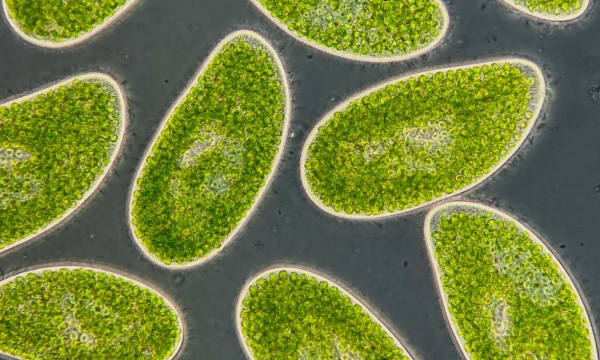Rising temperatures could push ocean plankton and other single-celled creatures toward a carbon tipping point that fuels more warming. But new research shows it’s also possible to detect early distress signals before they get there.
Researchers studying a group of widespread but often overlooked microbes have identified a climate feedback loop that could accelerate climate change. But it’s not all bad news: this one comes with an early warning signal.
Using a computer simulation, a team of scientists from Duke University and the University of California, Santa Barbara, showed that most of the world’s ocean plankton and many other single-celled creatures in lakes, peatlands and other ecosystems could cross a threshold where instead of soaking up carbon dioxide, they start doing the opposite. That’s because of how warming affects their metabolism.
Because carbon dioxide is a greenhouse gas, that in turn could drive up temperatures further -- a positive feedback loop that could lead to runaway change, where small amounts of warming have an outsized impact.
Read more at Duke University
Image: Found in lakes and rivers worldwide, single-celled creatures like these Paramecium bursaria can both eat and photosynthesize. Microbes like this play a double role in climate change, releasing or absorbing carbon dioxide -- the heat-trapping greenhouse gas that is the pimary driver of warming -- depending on whether they rely on an animal-like lifestyle or a plant-like lifestyle. Credit: Daniel J. Wieczynski.


